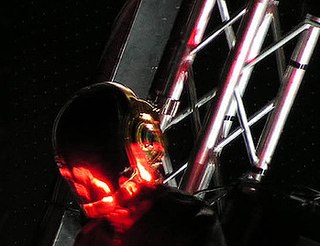A Quote by Daniel H. Wilson
Zombies, vampires, Frankenstein's monster, robots, Wolfman - all of this stuff was really popular in the '50s. Robots are the only one of those make-believe monsters that have become real. They are really in our lives in a meaningful way. That's pretty fascinating to me.
Related Quotes
Back in the twentieth century, we thought that robots would have taken over by this time, and, in a way, they have. But robots as a race have proved disappointing. Instead of getting to boss around underlings made of steel and plastic with circuitry and blinking lights and tank treads, like Rosie the maid on The Jetsons, we humans have outfitted ourselves with robotic external organs. Our iPods dictate what we listen to next, gadgets in our cars tell us which way to go, and smartphones finish our sentences for us. We have become our own robots.
There are lots of examples of routine, middle-skilled jobs that involve relatively structured tasks, and those are the jobs that are being eliminated the fastest. Those kinds of jobs are easier for our friends in the artificial intelligence community to design robots to handle them. They could be software robots; they could be physical robots.
According to Jewish legend, only the very wisest and very holiest rabbis had the power to make golems, animated servants of clay. Strictly speaking, the golem is not in the same class with Frankenstein's monster, because the golem is neither alive nor dead. He is, rather, the ancestor of all robots.
The danger of the past was that men became slaves. The danger of the future is that men may become robots. True enough, robots do not rebel. But given man's nature, robots cannot live and remain sane, they become ''Golems',' they will destroy their world and themselves because they cannot stand any longer the boredom of a meaningless life.
































